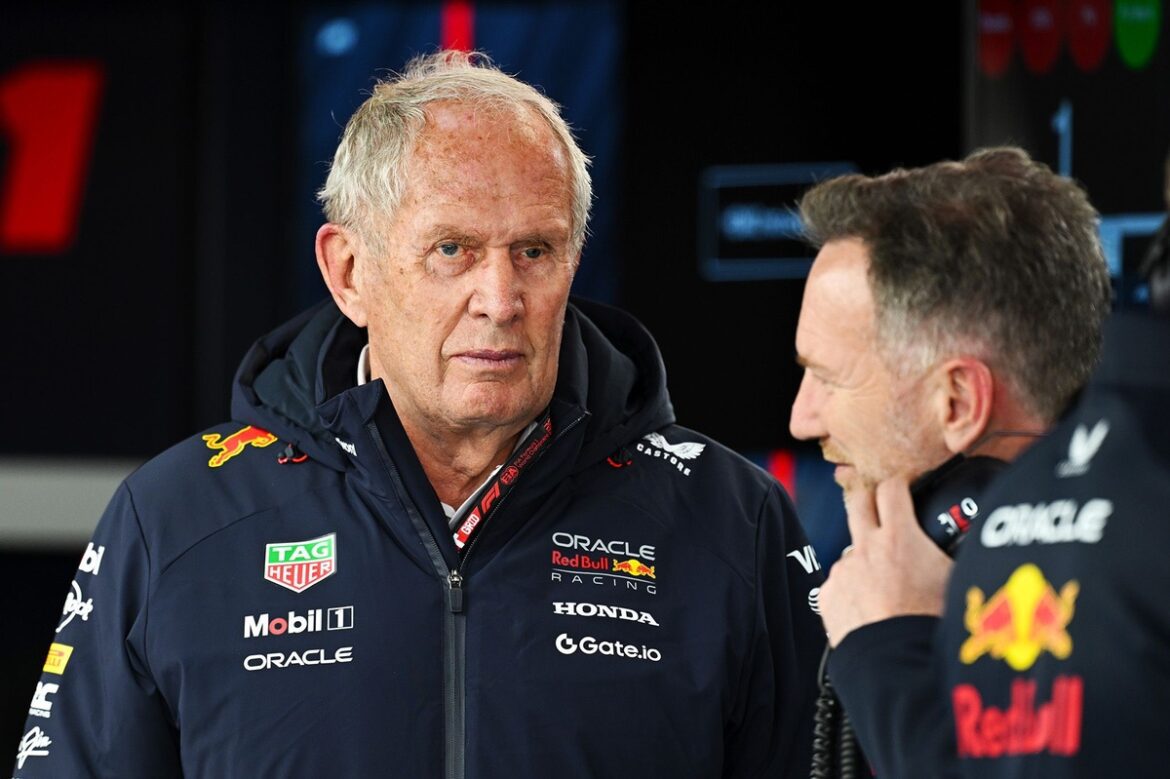After the recent Saudi Arabian Grand Prix, the spotlight has been on Max Verstappen, particularly concerning his penalty for overtaking Oscar Piastri outside the designated track limits. Verstappen contended that he was forced off the track and thus deserved more racing space from the pole sitter. This controversy prompted us to catch up with Helmut Marko, a key advisor for Red Bull Racing, to gain insights into the team’s perspective following the race.
In a brief exchange about the penalty, Verstappen expressed his frustration. Marko, however, took a more analytical stance, describing the incident as a racing occurrence rather than a breach of rules. He pointed out that similar situations had arisen multiple times in the Formula 2 series, where only one driver received a warning, while Verstappen was handed a five-second penalty. Marko emphasized that this particular incident took place during the first lap and first corner, reinforcing his view that it was simply part of the racing dynamics.
When asked whether the team considered letting Verstappen relinquish his position to fight back later in the race, Marko explained that overtaking opportunities were scarce. The team opted to stay out, believing it would provide more chances for strategy to play out effectively, particularly through pit stops and navigating traffic.
Reflecting on the impact of the penalty, Marko agreed that it effectively cost Verstappen a chance at victory. He expressed confidence that Verstappen had the pace to win the race, noting the strong performance of their tires and the absence of degradation throughout the race.
The race pace surprised many, including Verstappen himself, who had anticipated a more challenging performance during the race weekend. However, Marko noted that the team was positively surprised with their performance on both medium and hard tires. He explained that the circuit in Jeddah suited their car, the RB21, better than the Bahrain track, with its faster corners and layout contributing to their improved results.
As for the team’s development trajectory, Marko hinted at a multi-stage upgrade plan leading into future races in Miami and Imola. He indicated that the current upgrades were just the first phase and expressed optimism that by the time they reached Imola, they would be well-positioned to compete against other strong teams such as McLaren.
Discussing Verstappen’s start, Marko admitted he was disappointed, although it wasn’t a shock given the driver’s usual capabilities. He pointed out that while the start didn’t go as planned, Verstappen managed to recover by braking later in the race, which showcased his competitive spirit.
Marko acknowledged Verstappen’s frustration post-race, understanding that the penalty had denied him a potential win. This sense of disappointment was echoed in their conversation about Yuki Tsunoda’s race, particularly his collision with Pierre Gasly. Marko categorized that incident as unfortunate but ultimately a racing incident, reiterating that such occurrences are part of motorsport.
Despite the setback, Marko was optimistic about Tsunoda’s overall performance throughout the weekend, highlighting that he showed promise and made significant progress. He noted that while Tsunoda struggled with pace in free practice, he had the potential to perform better under pressure, particularly during qualifying.
When discussing the performance of Red Bull Racing’s secondary team, Racing Bulls, Marko remarked that they performed admirably, although overtaking proved to be a significant challenge due to similar tire performance among competitors. He emphasized that as long as the drivers were on comparable tires, overtaking was nearly impossible.
Looking ahead to the Miami Grand Prix, Marko expressed a cautious optimism. He noted that the typically hot conditions could pose challenges, especially since McLaren had demonstrated strong performance during free practice. However, he also pointed out that the race wouldn’t take place during the peak heat of the day, suggesting that the cooler conditions in the evening could level the playing field and allow Red Bull to be competitive once again.
In summary, the discussions following the Saudi Arabian Grand Prix reflect the dynamic and often contentious nature of Formula 1 racing. The interplay of driver performance, team strategy, and the influence of race incidents all contribute to the excitement of the sport. As Red Bull Racing looks forward to upcoming races, their focus will remain on refining their car’s performance and navigating the complexities of competition, all while aiming for consistent results on the track. The journey ahead will undoubtedly be challenging, but with a robust development plan and talented drivers, Red Bull Racing is poised to remain a formidable force in the Formula 1 landscape.
